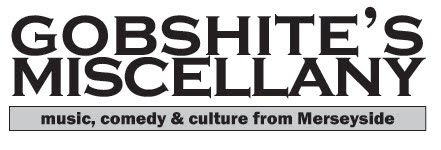
FRENCH cop thriller Spiral is the best show currently airing on British TV bar none.
The second series, which started on BBC 4 on Sunday, aired in France nearly 18 months ago and sees it pick-up where it left off: in a multi-layered, multiple narrative examination which penetrates into the heart of crime and punishment in modern day Paris.
But, hey, that’s the PR firm’s pitch to BBC 4’s commissioning editors over and done with. Let’s see what it’s really about.
Rather like The W*re, Spiral’s great triumph is not merely at finding out whodunnit, but at the political reasons for why crime happened in the first place and at the attendant immense political compromises inherent in the justice system. It is also highly addictive.
Its original French title, Engrenages, means ‘cogs’, metaphorically illustrating both the wheels within wheels of the justice process and how it impinges on public lives as well as the spirals of life into violence or degradation.
In Series 1, two ridiculously talented and good looking actors: Caroline Proust (Police Captain Laure Berthaud) (above right and Grégory Fitoussi (Pierre Clément, Acting Chief Prosecutor, above centre) investigate the disappearance of a pair of Romanian sisters, both of whom may have been caught up in a prostitution ring involving high ranking government figures and successful businessmen.
One sister is found on a tip in the first episode and the links between her, the chief protagonists and the entire French political system sees it rattle along into a denouement which will challenge the anger management facilities of even the most chilled of buddists. Everyone will be enraged as compromise after compromise sees pogroms against the lowest in society be excused and forgotten in the pursuit of the killer.
Its message is simple: the authorities catch the killer and ignore the social climate in which they exist because that is much too difficult a case to crack. It also says that we are all corruptible.
Chief characters leading the charge towards the darker side of human nature is the brilliantly played detective Gilou played by Thierry Godard (above, left) a cop embedded in the vice and drugs scenes he polices. His character is not particularly new but, Godard has a blast playing it.
Audrey Fleurot (above, second right), the red headed and utterly compromised lawyer Joséphine Karlsson, is emblematic of the corruption in the legal profession. Lawyers are lower than a snake’s coyones in Spiral, and that’s all right by me.
The second series has started as dramatically as the first with a body burned in a car with a small boy videoing it on a mobile phone. It seems to promise a treatise into the reasons why human trafficking and drug dealing can exist and the political reasons why public servants choose to pursue some cases and not others to suit their careers.
At the end of the day, I'll leave it to the often wonderful Polly Vernon from the Guardian to summarise it in a more flippant and honest way,
'Spiral, I realise, is Hollyoaks for the middle-aged, middle-class Francophile who fancies themselves as a bit above the tawdry business of – er, fancying people on TV. All of which makes Spiral magnificent and exciting and better – or at least, Frencher - than The Wire.'







